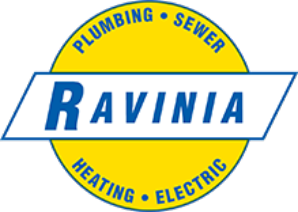
When it comes to heating your home, the options can be a bit overwhelming. One common dilemma homeowners face is choosing between a residential boiler and a furnace. Both provide heat to keep your living space warm, but they operate in distinct ways. Understanding the differences between these two types of central heating system equipment is crucial for making an informed decision about which one is best suited for your needs.
How They Work
Furnaces
Furnaces are forced air systems which heat air and distribute it throughout the home via ductwork. The heating process begins with the combustion of fuel, either natural gas, propane, or heating oil, or using electric heating elements. The generated heat is transferred to a heat exchanger, and the heat exchanger warms the air that circulates around it.
Once the air is sufficiently heated, a powerful blower forces it through a system of ducts. These ducts distribute the warm air throughout the house, reaching each room through vents or registers. The thermostat, which senses the current temperature, regulates the furnace by signaling when to start or stop the heating process.
Residential Boiler Systems
In contrast, residential boilers employ a different mechanism to achieve heating. As they are hydronic systems, boilers use water as the heat transfer medium. Oil or natural gas fired boilers ignite the fuel source in a combustion chamber. The heat exchanger then warms the cold water, turning it into either steam or hot water, depending on the type of boiler.
Radiant heat warms objects and surfaces in its path, creating a more even and consistent temperature throughout the room. In a steam boiler system, the generated steam travels through pipes to steam radiators throughout the house. As the steam releases heat, it condenses back into water, returning to the boiler to be reheated. Hot water boilers circulate water through a closed loop of pipes and radiators, providing consistent warmth.
Key Differences Between a Residential Boiler and a Furnace
Response Time
The primary distinction between a furnace and a boiler lies in how they deliver heat. By directly heating air and delivering it throughout the home, a forced air furnace ensures a swift response to temperature adjustments, providing a quick and efficient means of heating. Boilers, on the other hand, directly heat surfaces and people. This method provides an even and consistent distribution of warmth, creating a cozy environment. While the response time might be slower than that of a furnace, the overall comfort makes radiant heat an attractive option for many homeowners.
Air Quality
Furnaces can impact indoor air quality. The forced air system can sometimes distribute allergens, dust, and other particles throughout the house. Regular maintenance, such as changing air filters, can mitigate this issue. On the other hand, boilers generally have a minimal impact on indoor air quality since they don’t rely on air circulation to distribute heat.
Installation Cost
Furnace installation costs tend to be lower initially, as the forced air system is generally less complex and does not require piping. Additionally, furnaces often use ductwork that may already be present in a home, reducing installation expenses. However, if new ductwork must be installed, it will raise the cost of installing a new furnace.
On the other hand, boiler installation costs can be higher due to the need for specialized piping and radiators or underfloor heating systems if these components are not already installed in the home. The cost of installing new boiler systems is much less if existing piping and radiators will be used.
Ongoing Costs
Once installed, boilers average lower annual heating costs and run more efficiently. Adding the use of zone heating or an eco-friendly boiler, homeowners can further reduce their energy bills.
Does your unit need repairs? Look to furnaces for lower repair costs. Both furnaces and boilers should undergo annual service tune-ups. In addition, homeowners should replace furnace filters at a minimum quarterly. Households in dusty areas or where indoor pets reside should change these filters monthly, adding to the cost of annual furnace maintenance.
Water Heating
A certain type of residential boiler, a combi boiler, can serve as both a heating system and an indirect water heater for the home. Unlike a furnace, which is designed solely for space heating, a combi boiler has the capability to efficiently provide hot water for domestic use. This integrated design not only saves space but also ensures a continuous and efficient supply of hot water throughout the home. The versatility of a combi boiler makes it an appealing choice for homeowners seeking a compact and energy-efficient solution that meets both their heating and hot water needs with a single, integrated system.
Choosing the Right Heating System for Your Home
At Ravinia Plumbing, Sewer, Heating & Electric, we understand the importance of selecting the right heating system for your home. Our team of experienced professionals assess your needs and recommend the most suitable solution. Whether you opt for a residential boiler or a furnace, we provide expert installation services to ensure your home stays comfortably warm throughout the colder months.
Don’t let the choice between a boiler and a furnace overwhelm you. Contact us today, and let Ravinia Plumbing guide you through the process. Our commitment to excellence ensures that your home heating system not only meets but exceeds your expectations.
